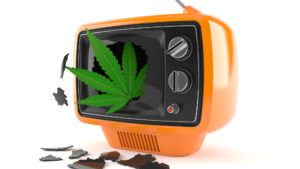Aussie regulator raps cannabis companies over their reggie weed

The TGA has accused several companies of dumping not-so-dank weed on unsuspecting consumers. Getty Images
- TGA tests 22 of the country’s top 25 medicinal cannabis products, finds five aren’t good enough
- Specifically, three products don’t have enough THC or CBD, two have too much
- TGA warns companies selling remaining stock of these products would be illegal
Someone’s been selling weed that’s very “not dank” – but thankfully, Australian regulators are on the case.
The Therapeutic Goods Administration says it has issued a warning to several cannabis companies after laboratory testing found their medicinal marijuana didn’t match what was on their labels.
Two companies were selling imported dry flower and cannabis oil that didn’t contain as much THC as the label stated, meaning smokers wouldn’t get as high as they might have expected.
Another cannabis oil product had too little CBD — a cannabinoid purported to have health benefits — while two other products had slightly more CBD than the label described.
All in all the TGA tested 22 of the country’s top 25 medicinal cannabis products by volume, to ensure amounts of THC and CBD present in the products matched that on the labels.
Seventeen products were in compliance, and three more product lines couldn’t be tested because they were no longer available.
The TGA said after hearing from the companies, it has “written to advise that supply of any remaining stock” under the cannabis regulation act “would constitute an offence under the Act.”
The cannabis that was out of compliance was Bedrocan dried cannabis flower imported by Novachem and Spectrum Blue cannabis oil from Anspect, both of which had too little THC; LGP Classic cannabis oil from Little Green Pharma (ASX:LGP), which didn’t have quite enough CBD; and Rideau and Capilano cannabis oil from Althea (ASX:AGH), which had “marginally” too much CBD.
Little Green Pharma, Althea respond
Little Green Pharma said in a statement “given its use and reliance on a TGA-accredited laboratory for the release testing, the Company is disappointed with the divergence in test results produced by the TGA’s audit.
“The Company and its testing agency are working closely with the TGA to determine how the agency’s TGA-licensed testing methodology and the TGA’s own testing methodology have produced differing results. That work is ongoing.”
Little Green Pharma said the 1,000 bottles in question from the product batch have already been dispensed and weren’t required to be recalled, nor was the safety of the product in question.
The company said it would test its medicines at the same laboratory the TGA uses until “relevant testing alignment has been completed and validated”.
Althea chief executive Josh Fegan said in a text message that the products named in the report “underwent extensive testing prior to release. This included pre-importation testing in Canada using independent laboratories, and post-importation testing in Australia using an independent NATA ISO/IEC accredited laboratory.”
“With respect to the products listed in the TGA report, prior to release Althea received results confirming the CBD content was within the tolerance of the required standard. These test results were further confirmed post-release as part of Althea’s routine rotational testing protocol.”
Althea is talking with TGA about its findings, Fegan said, noting that “interlaboratory variances will occur,” and that the TGA didn’t require Althea to take any action with respect to the products.
Stockhead has also contacted Novachem and Anspec for comment.
Stability a challenge
North Sydney-based cannabis data firm FreshLeaf Analytics said that “while stability for plant-based medicines is a known challenge in the industry, the inconsistencies in label claims and declared stated content are concerning.
“While some results were only marginally above or below, as an industry we can ill-afford the negative attention stemming from failing to meet TGA requirements, particularly when these results are coming from some of the industry’s leaders.”
FreshLeaf managing director Cassandra Hunt told Stockhead it was “really good the TGA is doing these quality checks” and it was a reminder to industry that failure to adhere to the regulations would have consequences.
Fine points of the law
The TGA requires that cannabis oils and capsules have within 10 per cent of the active ingredients stated on the label, while dried cannabis flower is allowed to deviate from what’s on the label by up to 20 per cent.
Most of the out-of-compliance products missed those tolerances by just a percentage point or two, but Novachem’s Bedocran dried cannabis flowers only had three-quarters of the THC stated on the label.
It had 74.9 per cent of the stated content for total THC, when at a minimum it needed to have 80 per cent.
The Novachem cannabis was also one of just three cannabis products not in child-resistant packaging.
While that’s not required, the TGA said it has recommended it to all three suppliers and one of them has agreed to incorporate it into their products. The TGA didn’t say which one.
The cannabis that was in compliance was sold by Health House International; Medlab Clinical (ASX:MDC); Bod Australia (ASX:BDA); Cannatrek Medical; Pharmaceutical Packaging Professionals and Burleigh Heads Cannabis.
Three other Althea oils and one dried flower product were also within acceptable limits, as was a different cannabinoid oil product from Little Green Pharma.
Related Topics
UNLOCK INSIGHTS
Discover the untold stories of emerging ASX stocks.
Daily news and expert analysis, it's free to subscribe.
By proceeding, you confirm you understand that we handle personal information in accordance with our Privacy Policy.








